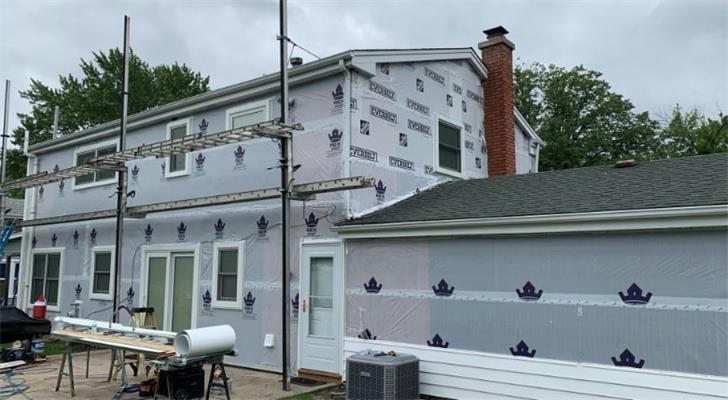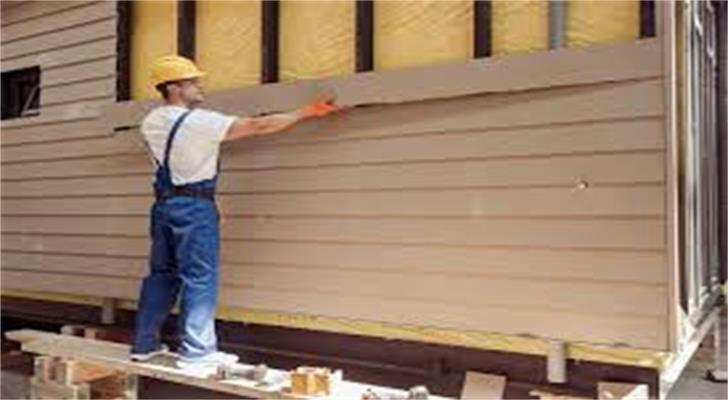The Role and Importance of Siding Installers in Modern Buildings
In today's rapidly developing construction industry, siding installers as a professional profession are gradually attracting more and more attention. With the acceleration of urbanization and the increase in construction needs, the employment opportunities for siding installers are also increasing.
I. What is a siding installer
A siding installer is responsible for installing various types of siding into the structure of a building. These sidings can be metal, composite materials or concrete, etc., and are widely used in residential, commercial and industrial buildings. Siding not only plays a role in aesthetics, but also provides good insulation and waterproofing. Therefore, siding installers play a vital role in building construction.

Job Responsibilities
Measurement and marking: Accurately measure the installation location and mark it to ensure the correct placement of the siding.
Support structure installation: According to the design requirements, install the necessary support structure to ensure that the siding can be firmly fixed to the building.
Siding installation: Siding is installed in a predetermined order, usually using lifting equipment to lift and place heavy sidings in place.
Welding and fixing: Metal siding is welded or bolted to ensure its stability.
Quality inspection: Each siding needs to be checked after completion to ensure that its verticality and flatness meet the standards.
II. Employment prospects for siding installers
A. Industry demand
With the booming construction industry, the demand for professional technicians is also increasing. According to market research, the demand for siding installers will continue to grow steadily in the next few years. Urban construction, new residential development, and commercial facility expansion all require a large number of qualified siding installers.
B. Career development space
Junior installers: When they first enter the industry, they are mostly assistants or junior workers, and they accumulate experience through learning and practice.
Senior installers: After several years of work experience, they can be promoted to senior workers and responsible for more complex projects.
Project managers: Those with outstanding performance have the opportunity to be promoted to project managers, responsible for overall construction planning and team management.
III. Advantages of Siding Installers
A. Stable Income
As a professional skill position, siding installers have a relatively stable income. Salaries vary depending on the region and experience level, but are generally higher than general labor positions.
B. Technical Training Opportunities
Many companies provide professional training to new employees to help them master the necessary skills. This training not only improves personal ability, but also increases professional competitiveness.
C. Occupational Safety
Although there are certain risks in the construction industry, the accident rate can be effectively reduced by strictly following safety regulations and using appropriate protective equipment. In addition, the industry is constantly introducing new technologies to improve construction safety.
IV. How to Join the Siding Installer Industry
A. Education and Training
Basic Education: Usually at least a high school degree is required, and some employers may require a vocational education background in a related field.
Professional Training Courses: Taking specialized training courses, such as construction-related courses offered by vocational schools or technical colleges, can help you master the necessary skills and knowledge.
B. Obtaining Certificates
Obtaining relevant professional qualification certificates, such as construction construction certificates, can improve your competitiveness. These certificates are usually issued by professional organizations and are important credentials for entering the industry.
C. Internship and Work Experience
Accumulate practical experience through internships or entry-level jobs and continuously improve your skills. Learning how to deal with various problems in actual work will help you grow into a qualified siding installer faster.
V. Joseph's job search experience
Joseph dropped out of high school due to family reasons. Although he was eager to find a job, his job search was very difficult due to his lack of education and skills. He tried a variety of jobs, from restaurant waiters to warehouse porters, but none of them could meet his financial needs. After each interview, he always felt lost and frustrated, and seemed to see no hope for the future.

By chance, Joseph learned about the profession of siding installer through a relative. At first, he didn't know much about this profession, but with the encouragement of his relatives, he decided to learn more. After some investigation and consultation, Joseph found that siding installers had relatively high incomes compared to other similar industries, and also had certain value and irreplaceability, which gave him new hope.
Don't hesitate, maybe the siding installer industry is not as difficult as you think!
In short, siding installers are a profession full of opportunities and challenges. In the modern construction industry, its importance cannot be ignored. With proper education, training and practical experience, people who are interested in this field can find their place in this field and realize their personal value. Whether you are pursuing a stable income or hoping to make a breakthrough in technology, this industry can provide you with a broad platform. In the future development, I hope that more people can join this vibrant and creative industry and jointly promote the development of the construction industry.
